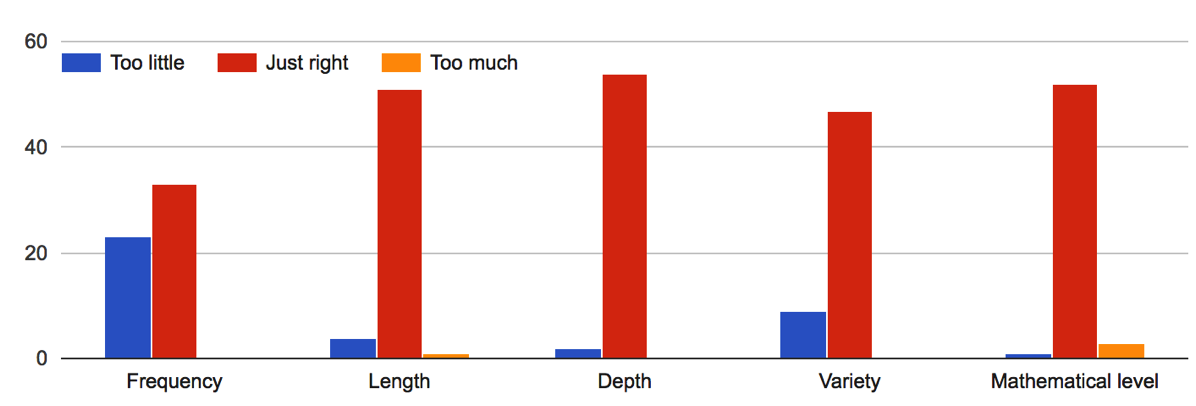
From the Beginning…
Originally, Wolfram’s programing language was utilized primarily by mathematicians to solve complex equations and design advanced mathematical models. Mathematica, as the language was first called, provided a way for researchers and scientists to study and analyze a wide range of problems. In fact, the language is well known to in areas like seismic research and other algorithm-rich environments.
However, Wolfram’s concept now goes far beyond fundamental mathematical concepts. If Wolfram is to be believed, his programming language will open doors to the world of artificial intelligence (AI) and allow users to move far beyond the constructs of today’s research models.
See also: 10 Great Programming Languages for Mathematics
What is Wolfram Language?
Wolfram’s concept is based on symbolic programming which, in and of itself, is not really new. In fact, the basic theory was first used by mathematicians a century ago. In symbolic programming, the program itself manipulates programs as plain data to simplify processes. The basic idea is that small data units are used to build more sophisticated processes. It’s often described as a program that’s able to modify the data and actually appear to learn. That’s the goal of AI and other processes expected to move computing to new levels within the next few years. When the very way data is manipulated by a program can be simplified, the program has the potential to provide better results faster.
Discovering the Advantages of Wolfram Language
Computer languages tend to be rather complex, meaning it might take thousands, or even millions, of lines of code to produce a useful program. Wolfram’s objective was, and is, to make it possible for program designers to accomplish their end goals with far less code required. That result, if achieved, would make the development of new programs simpler, faster, and less expensive.
In that more ideal world, scientific research could see significant improvements in data gathering, shortening the time required for projects. Businesses may well have the functional capability to accomplish research and development goals in far shorter periods, suggesting the costs of everything from small appliances to advanced weapons systems would be reduced.
There are practical applications where everyday activities would benefit as well as large organizations. When the idea is to simplify the ways devices operate, the applications are nearly endless. Even devices like smartphones could be simplified to make their operation easier and more intuitive.
The internet of things, or the networking of numerous devices to make communication between those devices simple, is another good example. Appliances, security systems, and a wide variety of other devices, to be truly interconnected and functional, require a means to simplify that connectivity. Wolfram Language may, indeed, provide a way for all types of devices to communicate effectively.
While the long-term implications are still not fully understood, Wolfram clearly believes in possibilities designers have not yet begun to explore. Because the concept is so simple, it’s believed that any device, regardless of its size, can utilize the programming language.
New Language, New Devices?
In reality, the potential uses for the Wolfram Language are almost unlimited in terms of our current understanding. Many of the “dumb” devices in use today are likely to be redesigned to perform better or accomplish entirely new things.
Take, for example, the current use of drones. While drones today generally require some level of human interaction to function, fully autonomous drones could accomplish more. The military applications are obvious, but exploring for mining, surveying damage after natural disasters, and countless other uses could quickly become the norm with proper programming. AI is, almost certainly, going to become an integral part of the future, and Wolfram Language may well be a big part of the evolution.
Are Those Grand Ideas Really Possible?
As with anything new, there are skeptics. Some people believe Wolfram’s ideas are not as developed as he would like the world to believe. While it’s clear Wolfram Language is really more than a basic programming language, it’s not clear it will deliver on its promises.
Wolfram’s claims are not always exactly as they seem. The programming depends on a vast knowledge base that must be accessed via Wolfram’s cloud-based data storage system. That’s not to say his claims are intentionally misleading, but the implementation of the Wolfram Language may not be as simple as might appear at first glance.
However, knowledge bases are continuously growing, which means the advantages of Wolfram Language will become more obvious as those bases expand. In addition, the Wolfram Language, like any other computer language, will no doubt keep evolving, suggesting the power of the language’s actual application will likely expand right along with the knowledge base.
Skeptics also point out that competing languages are also on the horizon—some of which could eclipse Wolfram’s. Those skeptics are, and not without merit, questioning the advantages of the Wolfram Language as new devices and applications are designed and implemented.
Looking to the Future…
It’s probably not a good idea to rule out the Wolfram Language, as the concepts he’s exploring would undoubtedly alter forever the way knowledge is gathered and used to expand on the world’s overall knowledge base.
The type of communication envisioned by Wolfram is also difficult for device users to comprehend today, as our current abilities are minimal compared to what the future is likely to bring. What types of capabilities will users have in the future if the Wolfram Language is fully applied to a whole new generation of smart devices? At this point, believers and non-believers alike are going to look for new developments and ways to implement Wolfram’s ideas.
While Wolfram’s original Mathematica has certainly evolved, it’s just as likely his programming language is also going to see multiple changes in the near future. Whether those changes will provide the advantages Wolfram envisions is open to speculation but, at the very least, the Wolfram Language appears to be a step in the right direction.
